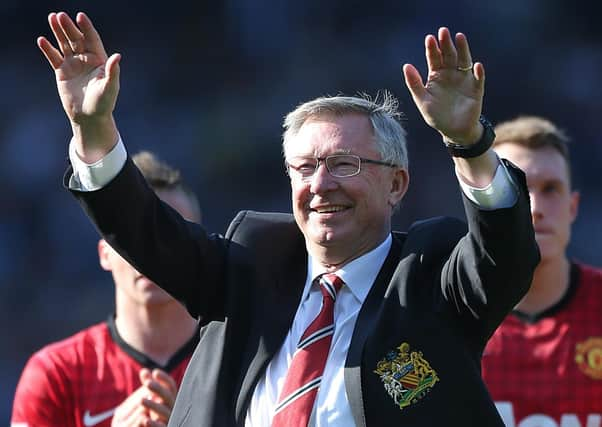Sliding doors moment that led to rise of Sir Alex Ferguson’s United empire


The ultimate, Scottish-hewn footballing empire.
Amid the nostalgiafest prompted by the absence of live football during the coronavirus health crisis, a momentous event 30 years ago this month slipped by without much comment.
It was May 1990, on the 17th, that Alex Ferguson claimed his first trophy as Manchester United manager. He did so three-and-a-half years on from moving to the club from Aberdeen, courtesy of a Lee Martin winner in a 1-0 FA Cup final replay victory over Crystal Palace.
Advertisement
Hide AdAdvertisement
Hide Ad“With that trophy, Alex was on his way,” said his then United assistant Archie Knox this week of the remarkable haul of 25 major trophies – 38 in all – that Ferguson clasped in the 24-year stint that would follow.
Had he not won that FA Cup, there is a belief that the Govan-born uber-manager would have been on his way out of Old Trafford.
The turning point of legend in a season that produced only miserable league form – “Fergie the flop!” screamed a Daily Express headline in November 1989 – is considered to have been a 1-0 win away to Nottingham Forest in the FA Cup third round in the first week of January when a 56th-minute strike from Mark Robbins was adjudged to have saved Ferguson’s job.
To Knox, though, it was an incident in the following round three weeks later on Hereford United’s glue pot of a pitch that was the sliding doors moment. It came with the tie scoreless into the second period.
Advertisement
Hide AdAdvertisement
Hide Ad“As a ball came over the top of our defence a guy in the crowd blew a whistle and some of our defence stopped thinking the referee had stopped play,” he said. “But the Hereford striker didn’t stop and he had a clear sighting of goal, only for Jim [Leighton] to make a double save. If they had scored then when we were struggling who knows.
“It just shows you that you never know what is round the corner.”
Footage of the incident shows Gary Pallister pulling up as Colin Robinson plays on before being thwarted by the Scotland keeper. The encounter came on the back of Ferguson’s men having failed to win any of their previous ten league games – their worst run since they were relegated in 1974 – to slide to 17th in the First Division.
A goal lost then might have sent them over the edge on an afternoon wherein they required an 86th-minute Clayton Blackmore goal to see off the Fourth Division team. It temporarily warded off the vultures, but Knox maintains there was more understanding within the club than was portrayed at the time.
Advertisement
Hide AdAdvertisement
Hide Ad“Before that Forest game I know the directors said they understood what Alex was doing and they would stand by him. Obviously you wouldn’t have wanted to test that backing...” said Knox, who would be enticed north to become Walter Smith’s No2 at Rangers with United on their way to Cup Winners’ Cup glory. “But people forget that in our first full season at Old Trafford [1986-87] the club finished second.”
It is notable, indeed, that home grown products like Robbins and Martin produced key scoring moments in the successful cup run and that their efforts were supplemented by the contributions of Ferguson buys Brian McClair, Mark Hughes and Neil Webb.
To those who see all football through a Scottish prism, there is another fateful element of United’s 1990 cup win – the end of Leighton’s Old Trafford career.
For the replay, Ferguson replaced Leighton with Les Sealey, who produced two decent stops as the cup was snared.
Advertisement
Hide AdAdvertisement
Hide AdIt is utterly incredible to consider that between 1989-90 and Ferguson’s retirement at the conclusion of his 13th title success in 2012-13, there were only three seasons in 24 that United did not land a major honour.
“You will never see a management career like Alex had at United,” said Knox. “Not just for the honours and the consistency, but for that ability to build and rebuild title-winning squads.
“You look at it now. Pep Guardiola, Jose Mourinho and even Jurgen Klopp talk about projects at clubs as stints lasting four or five years. I remember him coining that phrase that Old Trafford was ‘the theatre of dreams’. He made it that.”
Comment Guidelines
National World encourages reader discussion on our stories. User feedback, insights and back-and-forth exchanges add a rich layer of context to reporting. Please review our Community Guidelines before commenting.